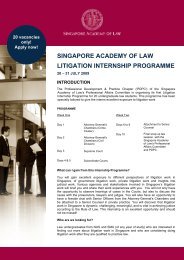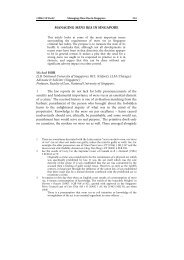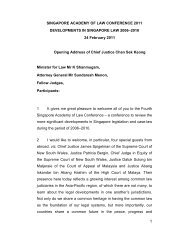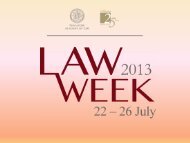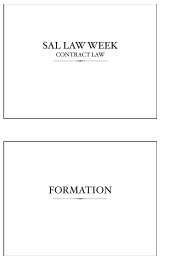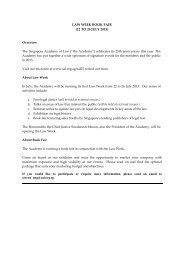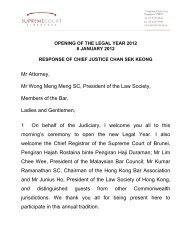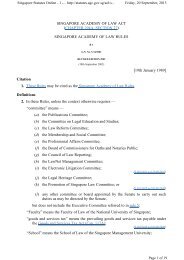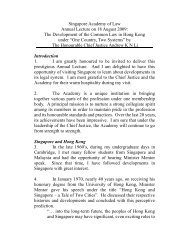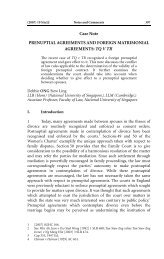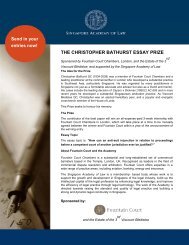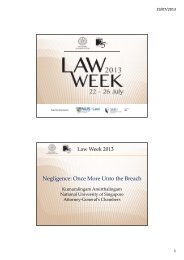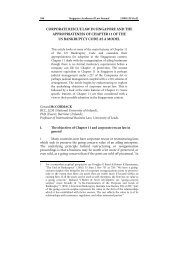View Article - Singapore Academy of Law
View Article - Singapore Academy of Law
View Article - Singapore Academy of Law
Create successful ePaper yourself
Turn your PDF publications into a flip-book with our unique Google optimized e-Paper software.
15 SAcLJ Matrimonial Assets and the 3 rd Party 257<br />
counsel, the judge made an order restraining the brothers from remaining<br />
at, or entering the matrimonial home until an application for ancillary<br />
relief made in the proceedings had been adjudicated upon, or until<br />
further order. None <strong>of</strong> the brothers were parties to the proceedings. The<br />
court observed:<br />
“At the adjourned hearing…the only indication <strong>of</strong> the wife’s<br />
case—namely that based upon an express trust granting her and<br />
her husband exclusive possession—was to be found in the<br />
paragraph in the affidavit to which I have already referred [i.e.<br />
the wife’s affidavit in support <strong>of</strong> her application]. There are no<br />
grounds for being certain that the brothers were aware that this<br />
was the case being made by the wife, or the details upon which<br />
she based her case. There was no evidence that the brothers had<br />
been served with a copy <strong>of</strong> her affidavit. They were not parties to<br />
the application and would only be aware <strong>of</strong> documents, etc by<br />
virtue <strong>of</strong> secondhand information obtained from the<br />
husband…In addition there appears to be some conflict between<br />
the parties as to the stages during which any particular brother<br />
might or might not have been in court.” (per Purchas LJ, at page<br />
518)<br />
93 The court held that the judge should have joined the brothers as<br />
parties to the proceedings, as this would at least have given them a status<br />
before the court which would have made them subject to the court’s<br />
jurisdiction.<br />
94 Thus, it appears that once the 3 rd party is made a party to the<br />
proceedings, his status vis-à-vis the court and the other parties would be<br />
completely clear, as would the rights and duties <strong>of</strong> all the other parties in<br />
relation to the 3 rd party, and vice versa. The situation if he is not made a<br />
party to the proceedings is much more ambiguous.<br />
95 It is therefore submitted that if orders against the 3 rd party are<br />
requested, the appropriate course <strong>of</strong> action to take is to apply to join him<br />
as a party. If this has not been done, then the court should not make<br />
orders against the 3 rd party, no matter what documents have in fact been<br />
served on the 3 rd party, and the extent to which he may already have<br />
participated in the proceedings (for example, by attending ancillary<br />
matters pre-trial conferences, filing witness affidavits, and so on). 71<br />
71<br />
An exception should be made, however, in respect <strong>of</strong> costs awards against the nonparty.<br />
The court may award costs against a non-party inass [continued next page]



